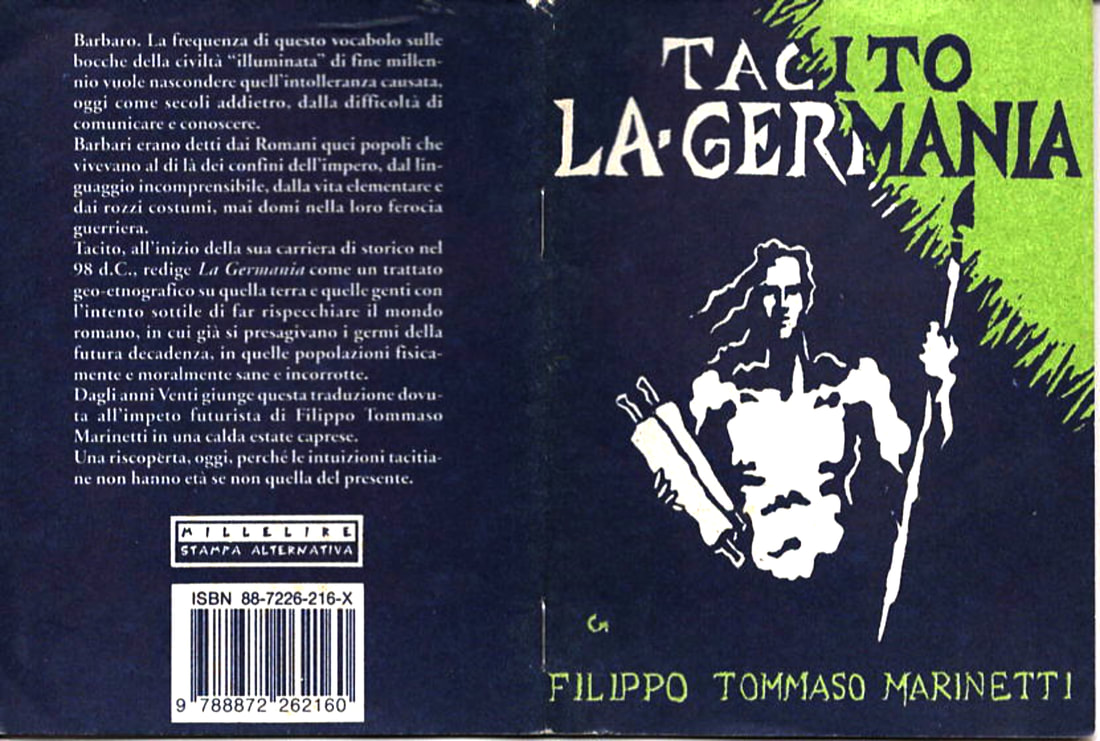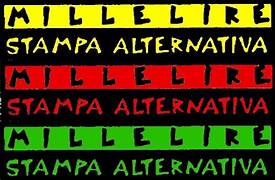Un Millelire in tasca, e parto: una leggendaria collana editoriale per il viaggiatore
Cos'hanno di unico i libri Millelire? Sono l'ideale per viaggiare leggeri, si scaricano on line. E i Millelirepersempre sono persino gratis.

Cos'hanno di unico i libri Millelire? Sono l'ideale per viaggiare leggeri, si scaricano on line. E i Millelirepersempre sono persino gratis.

(English translation below)
Leggero, il viaggiatore, s’infila in tasca un Millelire e ovunque vada ha da leggere. Così risolve la noia delle lunghe attese, delle sospensioni del tempo in treno aereo o nave, e quell’annoso rapporto tra peregrinare e leggere, che poi sono due aspetti della stesso andare, tra bagaglio intellettuale e bagaglio fisico.
Un Millelire non pesa niente, eppure è un vero libro. Nemmeno in miniatura, ma senza fronzoli, e con grafica curata, anzi pure d’avanguardia, e cartine geografiche e illustrazioni se necessario, e la solidità delle cose fatte in modo semplice. E costi inesistenti – mille lire, un euro, almeno un centesimo, il prezzo lo fa il lettore – per un catalogo di classici e di novità, di inediti e di provocazioni.
L’idea dei Millelire fu di Marcello Baraghini, il più innovatore tra gli editori non italiani ma addirittura europei. Solo un uomo libero, un radicale che passò perfino casa sua a Marco Pannella, uno che nel suo micro Manuale per diventare editore all’incontrario confessa che s’innamorò del piombo fuso che scendeva in una vasca del Linotype, dove l’addetto alla tastiera lo trasformava in tempo reale in righe tipografiche, che a lui pareva magia pura, mai vista prima, degna del girone estremo dell’inferno; uno che ruppe col Sessantotto perché i capetti della sinistra rifiutarono la sua proposta di un concerto gratuito di Jimi Hendrix nell’Aula Magna della Sapienza dopo una serata al Brancaccio di Roma consumando droga Hendrix.
Uno che fa le cose facili, e le fa davvero: da viaggiatore (già ai tempi dei tragitti scolastici in autobus) un Millelire me lo portavo spesso in tasca: sono libretti emulati da tanti, anche fuori d’Italia, ma, come i piatti più semplici, riescono bene solo a chi ci mette il cuore, a chi conosce la ricetta originale – quella sì davvero semplicissima, quella nuda.
Libri ideali del viaggiatore leggero, e, spulciando in un catalogo pluridecennale, anche libri di viaggio. Solo una manciata di titoli, come esempi: un colosso involontario della letteratura di viaggio quale la La Germania di Tacito, per giunta tradotto da Marinetti, Quattro ore a Sabra e Chatila di Genet, La guerriglia di Lawrence, Calvino in Topolino di Luca Mora, Interrailman di Luca Conti, l’enigmatico Papalagi dello pseudo giovane delle Samoa. Anche io appartengo al felice parnaso di questi scrittori da due soldi, con due Millelire (che si vendono in fretta), su Gaza e sull’Afghanistan & Firenze.

È un catalogo che va avanti dal 1989, e che solo nei primi dieci anni ha venduto venti milioni di copie.
Omaggiato da una recente mostra al Palazzo delle Esposizioni di Roma, oltre che da innumerevoli interviste televisive e radiofoniche, Marcello Baraghini ha, con il delfino Claudio, una splendida tana-libreria che irraggia cultura da Pitigliano, dove da anni dirige anche il più che ventennale Festival Internazionale di Letteratura Resistente.
Resistente al punto che, stufo – come tutti noi – del sistema, Marcello Baraghini ha compiuto un altro passo, estremo: tutti i libri sono scaricabili gratuitamente, alla faccia del profitto degli editori. Siamo all’apoteosi di un’editoria lei stessa esploratrice, lei stessa nomade, come noi, autori, lettori, viaggiatori di strade bianche, quelle minori, trasgressive e indimenticabili.

ENGLISH VERSION
What is unique about Millelire books? They are ideal for traveling light, you can download them online. And the Millelirepersempre are even free.
The light traveler puts a Millelire in his pocket and has something to read wherever he goes. Thus he solves the boredom of long waits, of the suspension of time by train, plane, ship, and that age-old relationship between wandering and reading, which are two aspects of the same journey, between intellectual baggage and physical baggage.
A Millelire weighs nothing, yet it is a real book. Not even “miniature”, but without frills, and with accurate graphics, indeed even avant-garde, and geographical maps and illustrations if necessary, and the solidity of things done in a simple way. And non-existent costs – a Millelire, one euro, at least a cent, “the price is set by the reader” – for a catalog of classics and novelties, unpublished works and provocations.
The idea of the Millelire came from Marcello Baraghini, the most innovative among European publishers. A free man, a Radical Party member who even gave his home to Marco Pannella, one who in his little Manual to become a backwards publisher confesses that he fell in love “with the molten lead that was poured into a Linotype vat, where the keyboardist transformed it in real time into typographic lines, which to me seemed like pure magic, never seen before, worthy of the extreme circle of hell”; one who broke with Sixty-eight because the “leaders of the left” rejected his proposal for a free concert by Jimi Hendrix in the Aula Magna of Sapienza after an evening at the Brancaccio in Rome, since “Hendrix uses drugs”. Someone who makes things easy, and really he does: as a traveler (already at the time of school trips by bus) I often carried a Millelire in my pocket: they are booklets emulated by many, even outside Italy, but, like the dishes simpler, they are only successful for those who put their heart into it, for those who know the original recipe – the really simple one, the naked one. Ideal books for the light traveler, and, sifting through a multi-decade catalogue, also travel books. Just a handful of titles, as examples: an involuntary colossus of travel literature such as Tacitus’ Germany, in the precious translation by Marinetti, Four hours in Sabra and Chatila by Genet , Guerrilla by Lawrence, Calvino in Topolino by Luca Mora, Interrailman by Luca Conti. The enigmatic Papalagi of the pseudo young man from Samoa. I too belong to the happy circle of these two-pennies writers, with two Millellire (which sell out quickly), on Gaza and on Afghanistan & Florence. It is a catalog that has been going on since 1989, and that only in the first ten years alone has sold twenty million copies.

Honored by a recent exhibition at the Palazzo delle Esposizioni in Rome, as well as countless television and radio interviews, Marcello Baraghini has, with the dolphin Claudio, a splendid lair-bookstore that radiates culture from Pitigliano, where for years he has also directed the more than twenty-years old International Festival of Resistant Literature.
Resistant to the point that, fed up – like all of us – with the “system”, Baraghini has taken another, extreme step: all the books can be downloaded for free, in spite of publishers’ profit. We are at the apotheosis of the publishing industry, which makes itself an explorer, a nomad, like us – authors, readers, travelers on the lesser, heterodox and unforgettable blue roads.
